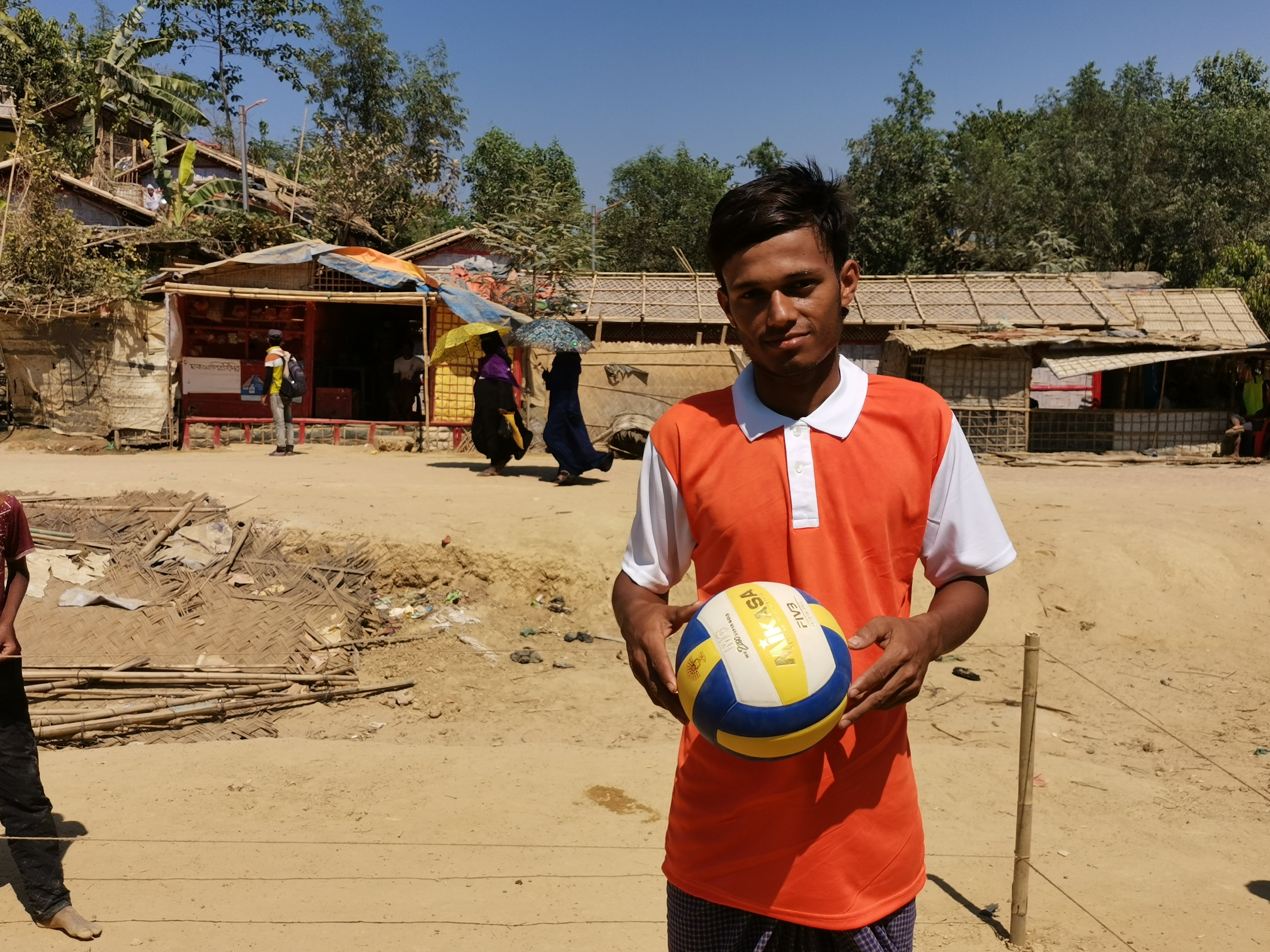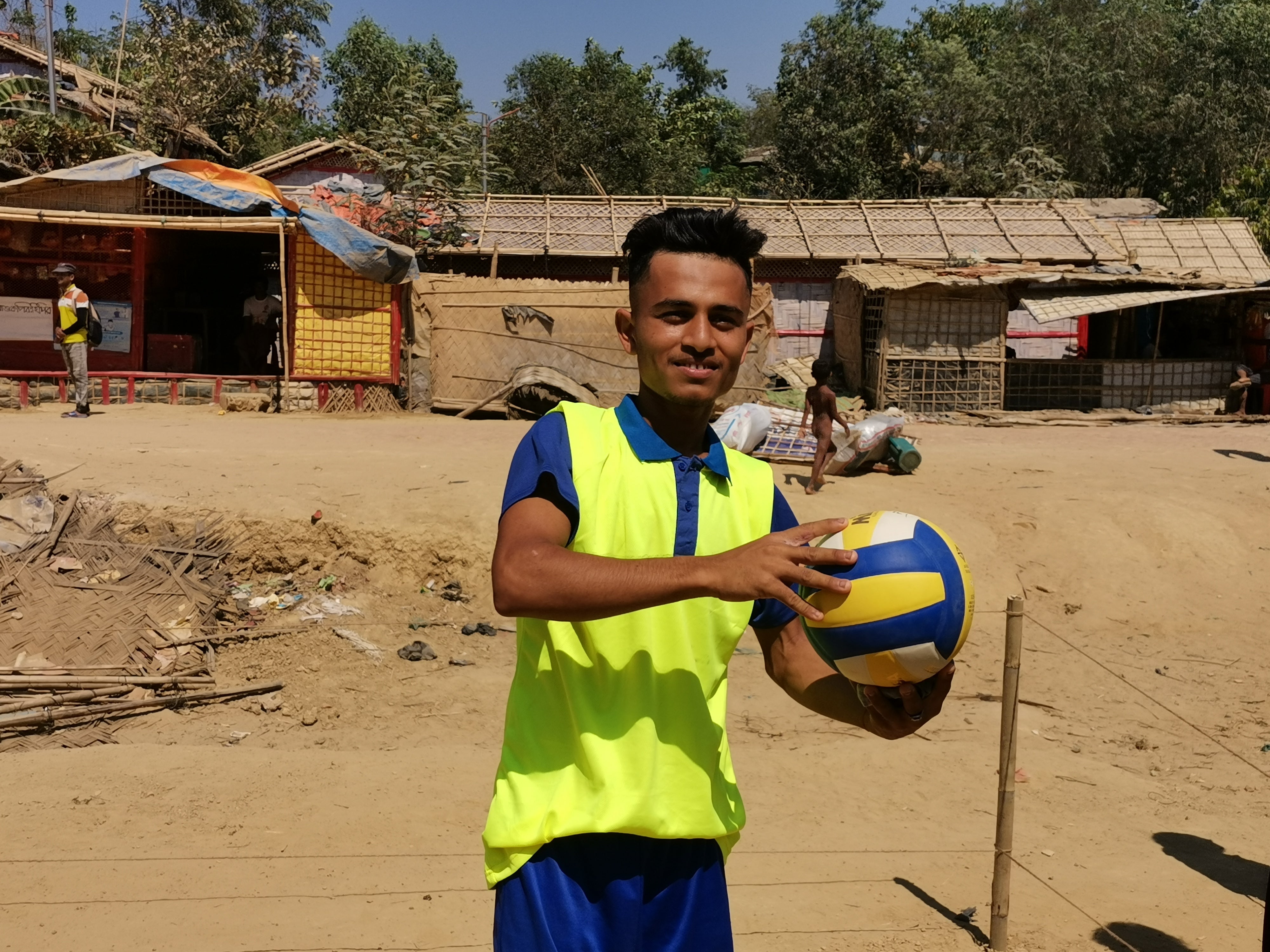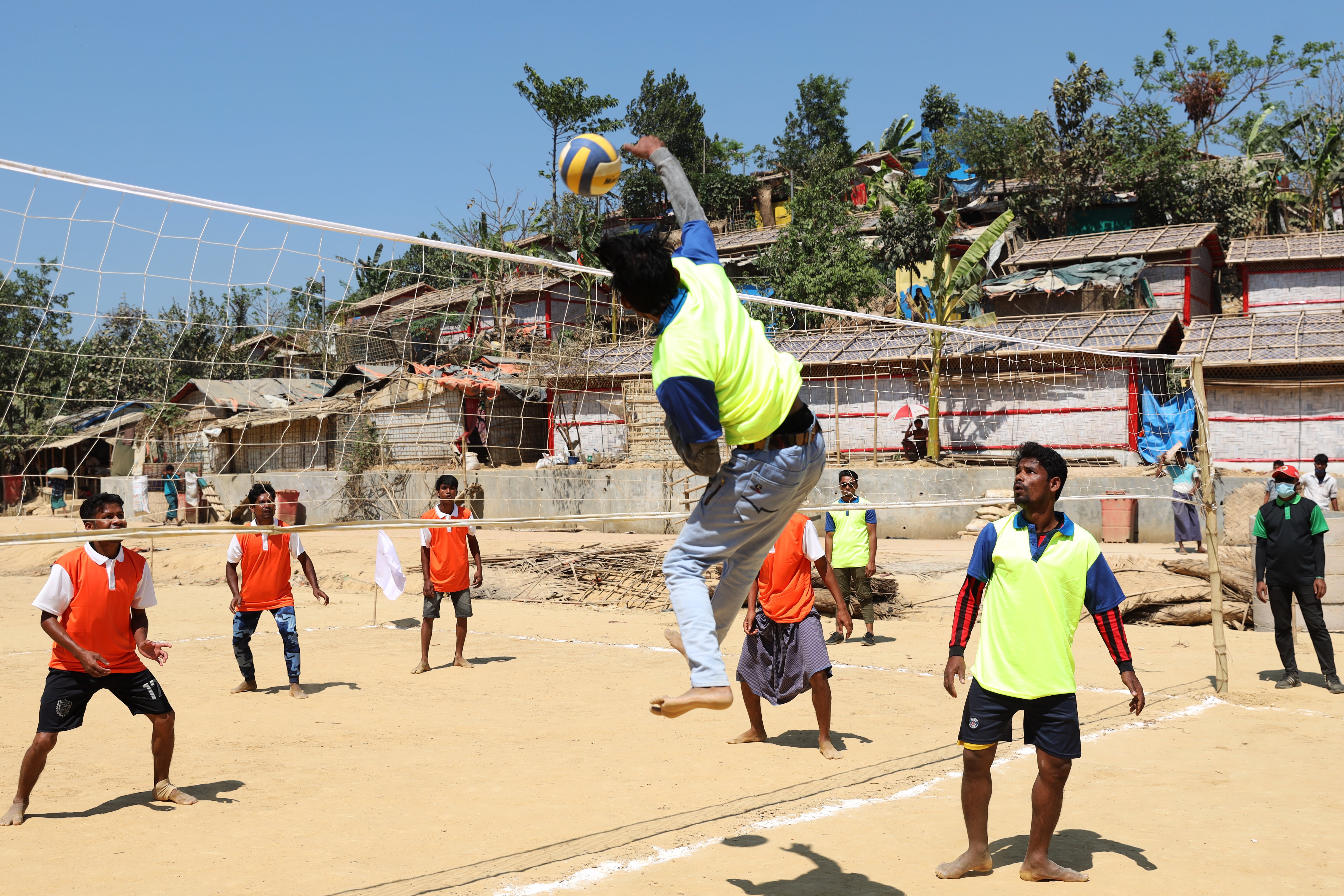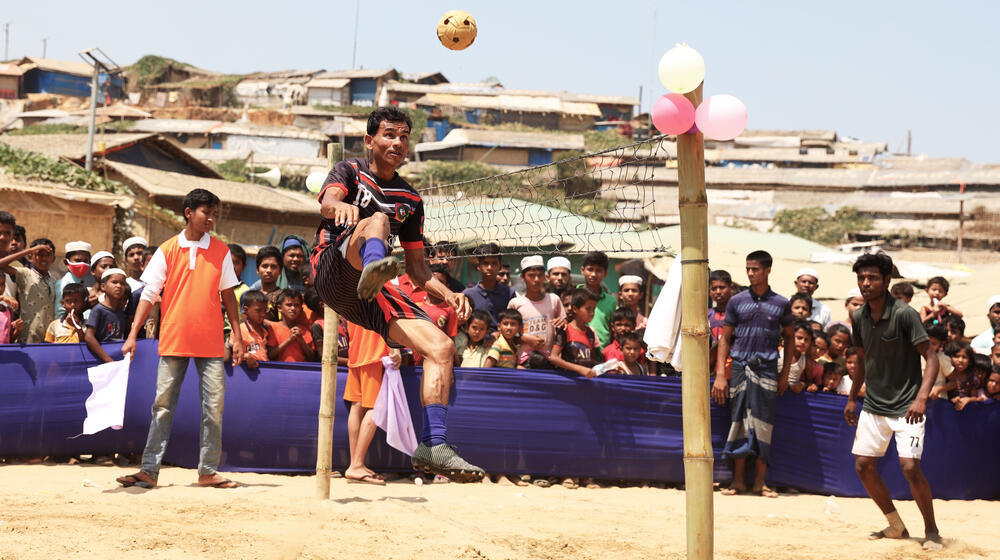“Playing volleyball, a completely new sport to me, gives me a peace of mind by distracting me from the routine of living in the camps,” says Sayath Kalam, an 18-year old Rohingya boy during a volleyball tournament that UNFPA organized in the Rohingya refugee camps in Cox’s Bazar this March.
With funding provided by the Foreign, Commonwealth and Development Office of the United Kingdom (FCDO), UNFPA is currently implementing a Sports Initiative project for more than 200 adolescents and youth groups in the Rohingya camps. The initiative organizes more than 20 sports activities in 10 locations in the refugee camps and aims to make communities value sports as a promoter of peace, social cohesion, inclusivity and friendly relations among people from different cultural and religious backgrounds.

For 18 year old Sayeth Kalam, playing volleyball is a way to escape the difficulties he faces in the refugee camps. Photo: UNFPA Bangladesh/Fahima Tajrin
“What we hope to do is to encourage youth to not discriminate against anybody and build cohesion and friendly relations in the congested camps,” explains Fakhrul Islam, a Deputy Project Coordinator from Dan Church Aid, one of the partners implementing the project with UNFPA.
During the football and volleyball matches, the atmosphere in the refugee camps becomes electrifying. Children gather around the field and root for the players immersed in the game.
“Before my family fled to Bangladesh, I used to play volleyball in Saudi Arabia. I find these matches enjoyable as they give me the opportunity to make new friends and improve my physical strength,” says 19-year old Adbul Ahmed who dreams of a career as an engineer.

The initiative has enabled 19-year old Abdul Ahmed to take up his old hobby again. Photo: UNFPA Bangladesh/Fahima Tajrin
UNFPA also uses the games as an opportunity to raise the audience’s awareness of different issues relevant to its mandate. A speaker system is used for both providing commentary on the games and to disseminate messages on mental health, sexual and reproductive health and rights gender-based violence and women’s rights. “The messages we diffuse highlight the need to respect women, for example by not eve-teasing them when they move in the camps,” explains Md. Ashrafur Rahman, a UNFPA Programme Analyst in Cox’s Bazar.
Above all, the initiative is a way to enhance the physical and mental wellbeing of Rohingya youth who often suffer from trauma due to the hardships they have and continue to experience. “In a humanitarian setting, where sports and cultural opportunities are limited, we must invest more in them”, states Dr. Iliza Azyei, a Programme Lead of the Adolescents and Youth Team at UNFPA Bangladesh. “Sport is an inclusive means of helping adolescents and youth to improve their health, to develop their physical abilities, to develop their social, educational and leadership skills, and of course, to play and have fun.”

On this International Day of Sport for Development and Peace, UNFPA promotes the positive role of sports in building stronger and more resilient communities. By embracing the values of cooperation, resilience and dedication that sports exemplify, we can achieve a more sustainable future in Bangladesh and around the world.


